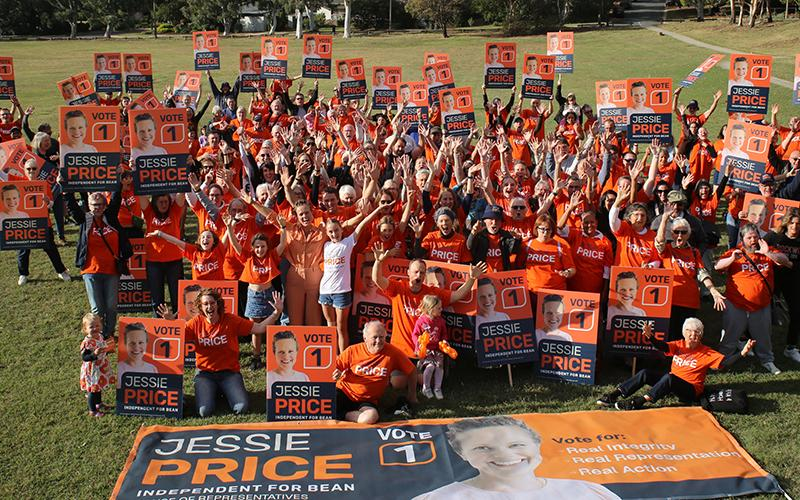With the Australian Electoral Commission due to report on election spending next week, questions are being asked within the independent movements about the secrecy surrounding campaigns. Andrew Gardiner with the story.
Across all electorates, independent candidates won more votes in the May 2025 Federal Election than ever. The Community Independents Project (CIP, colloquially known as the Teals) was behind 37 of the independent candidates, many of whom received funding from climate activists and crowd-funders Climate 200.
Claims of candidates “paid to run”, the use of non-disclosure agreements (NDAs), and some odd campaign spending habits at crowd-funder Climate 200 (C200) have prominent teals calling for wholesale change in the community independents movement.
Most complaints centre around ‘top down’ involvement in campaigns, city-centric messaging in regional seats and a corporate culture at C200 and campaign consultants Watershed, which, they say, transformed the community-based teals of 2022 into practitioners of politics-as-usual.
Sources close to C200, Watershed, and some candidates dispute these claims. “C200 had no impact on decision-making and policy”, Bean (ACT) candidate Jessie Price told MWM, “We have our own policy committee”.
Several candidates and campaign operatives were asked to sign NDAs, often before a campaign’s debts were cleared. MWM understands that Forrest (WA) independent Sue Chapman signed NDAs with C200’s allied consultants, Watershed. A Watershed spokesperson confirmed it was signed “at the campaign’s request.”
MWM has seen one case where a candidate was asked to sign an NDA with the candidate selection committee prior to being interviewed, agreeing not to disclose any information about the process, committee members or other candidates.
A Climate 200 spokesperson affirms that they did not have anyone sign NDAs, nor did they pay any candidates.
Many of those involved with the campaigns were uncomfortable with signing NDAs, one operative pointing out to MWM, “You only make someone sign an NDA if you don’t want your dirty little secrets out in the open.”
Crisis meeting
These revelations came as prominent teals held a crisis meeting with C200 executive director, Byron Fay, and new campaigns manager Kate Hook this week, over what promises to be fireworks over teal campaign donation figures. Rumours over waste and cronyism in campaign spending will either be verified or refuted when those numbers come out on Monday under new AEC rules.
MWM understands that, in an effort to manage the fallout, The Guardian was approached to run a story on the huge sums conservative political lobbying groups threw at marginal electorates. At the time of writing, that story was scheduled for publication this week.
In Groom (Qld), investment from Advance alone was almost $100,000, Monday’s meeting heard, with much of that spent attacking independent Suzie Holt.
A second wave of advance publicity this weekend would see SMH, The Guardian, and other outlets publish “pro-active stories” around C200’s lengthy list of small-dollar, suburban patrons.
Less likely for mention are the bigger players – C200 executive director Byron Fay, share trader Rob Keldoulis and investor Marcus Catsaras (around $1 million each to C200 over the past two years, per AFR) and tech bro Mike Cannon-Brookes ($500,000 direct to ‘teal’ campaigns this year alone, per Monday’s C200 meeting).
Editor’s note after publication: “Climate 200 asserts that the annual meeting had been scheduled well in advance, and that the specifics quoted about media and individual donors were not discussed at the meeting and, in fact, are wrong.”
Too much money?
Sue Chapman sees money itself as the problem. “The whole ecosystem that has built up around community independents has become a parody (of “independence”) through the use of money as leverage”, Chapman said.
Clive Palmer is absolute proof that an over-reliance on money doesn’t work.
Dark Money: Labor and Liberal join forces in attacks on Teals and Greens
An Adelaide-based graduate in Media Studies, with a Masters in Social Policy, I was an editor who covered current affairs, local government and sports for various publications before deciding on a change-of-vocation in 2002.

